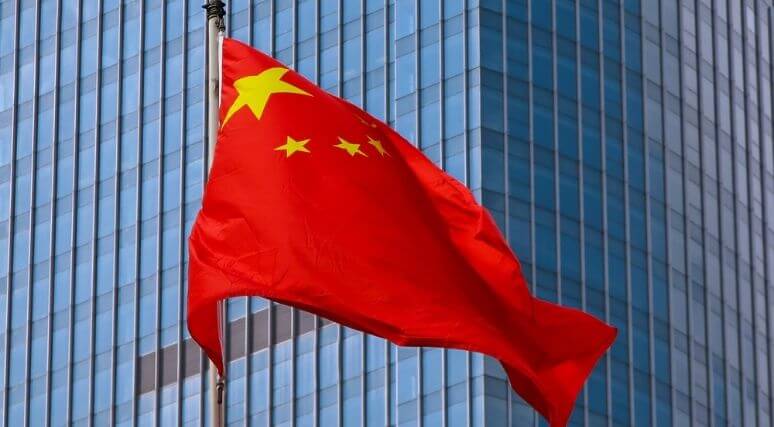 Despite upgraded relations, Beijing’s actions in the region threaten ASEAN’s foundation, writes Stephen Nagy in the Japan Times.
Despite upgraded relations, Beijing’s actions in the region threaten ASEAN’s foundation, writes Stephen Nagy in the Japan Times.
By Stephen Nagy, December 10, 2021
Late last month, China and ASEAN formally upgraded their relationship to a “comprehensive strategic partnership.”
With the title usually reserved for countries with very close relations, the upgrade suggests a substantive deepening of relations and convergences on issues across the spectrum.
Despite the title and supposedly stronger ties, however, relations between China and ASEAN remain marred with fundamentally different views about the South China Sea, a strategic hot spot where intractable territorial issues remain.
These differences were vividly on display at the South China Sea International Conference hosted by the Diplomatic Academy of Vietnam held earlier in November.
This dialogue included academics including myself and policymakers from stakeholders in the region interested in defusing the tensions in the South China Sea and finding ways to build a constructive future.
What was clear from the dialogue is that views on the future of the South China Sea diverged into two versions. The first imagined by most countries saw international law and a rules-based approach to dealing with territorial disputes as being key to peace and stability in the region.
They agreed that it was in the interests of all parties to act in accordance with international law such as the United Nations Convention on the Law of the Sea (UNCLOS) to settle territorial disputes and to find a common path forward.
The second version was articulated by Chinese representatives.
Chinese counterparts stressed that Beijing’s “five principles of peaceful coexistence” were the basis by which China would pursue peace and stability in the South China Sea through a win-win approach. These principles are mutual respect for sovereignty and territorial integrity, mutual nonaggression, non-interference in each other’s internal affairs, equality and mutual benefit, and peaceful coexistence.
But what is clear is that China’s long-standing approach has been in contradiction with the very principles they speak of.
To start, China rejected the 2016 Permanent Court of Arbitration decision in favor of the Philippines and against China’s claims of sovereignty over features in the South China Sea.
China has also built and subsequently militarized islands in the South China Sea. These new features have come together with claims of a 12 nautical mile territorial sea emanating from the artificial islands. It is a clear violation of international law in which artificial structures are not granted territorial seas.
The recent use of water cannons by Chinese Coast Guard vessels in the exclusive economic zones of the Philippines has increased the danger of conflict by using police assets in the territorial wars of another country in the region.
So-called gray-zone operations using merchant vessels are testing the strategic patience of countries like Vietnam and the Philippines. But as these countries refrain from responding in kind to the threatening behavior of Chinese vessels, it incrementally erodes their sovereignty claims.
China is already treating the South China Sea as its territorial waters. In April, the Chinese Coast Guard unilaterally announced that it would enforce a summer fishing ban from May 1 to Sept. 16, covering the Bohai, Yellow and East China seas.
As opposed to peace and stability, China continues to send contradictory signals to Southeast Asian stakeholders and extra regional partners such as Japan, the United States and other stakeholders within the region.
China continues to insist on bilateral, nonlegalistic solutions that are nonbinding to find walkways to deal with the territorial disputes within the region with the aim of establishing de facto control of the South China Sea.
Joint resource exploitation under the umbrella of “science diplomacy” or win-win cooperation is the preferred approach shifting away from a confrontational approach with some countries.
In the short term, this benefits countries that cooperate with China. More problematic, though, is fostering stronger bilateral ties with individual ASEAN members that creates conditions in which those individual members can be influenced by Beijing to prevent ASEAN from finding consensus on issues facing the association.
This practice of divisionism fractures ASEAN unity and as a result, makes it difficult for southeast Asian countries to form a common approach to China’s territorial claims.
In this sense, despite China’s claims of non-interference in each other’s affairs, there is a systematic fracturing of ASEAN unity, a rejection of international law and the breaking of promises to other leaders to not militarize the South China Sea.
ASEAN-China relations certainly have much to cheer about in the areas of trade, investment, infrastructure and connectivity.
Despite these strengths, China’s track record on territorial issues in the South China Sea threatens individual territorial claims of other claimants, but also the raison d’eter of ASEAN to create strategic autonomy of its association’s members such that they can make independent decisions about issues facing their region.
Japan has a stake in ensuring the ASEAN consensus-based decision making remains robust and resilient against pressure from forces that want to keep the regional group down and fractured on the South China Sea or other issues deemed a priority for Beijing.
Tokyo can best ensure ASEAN retains its sought-after strategic autonomy through vigorous diplomacy in the region, promoting intra-ASEAN regional integration through comprehensive development policies that include human capacity building, interoperability exercises and sustained investment in the region.
Stephen Nagy is a senior associate professor at the International Christian University in Tokyo, a senior fellow at the Macdonald-Laurier Institute, a fellow at the Canadian Global Affairs Institute and a visiting fellow with the Japan Institute for International Affairs.





